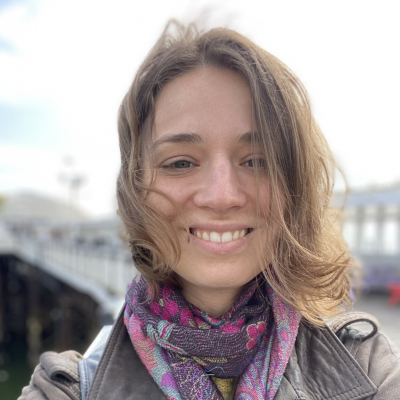
Marija Norkūnaitė
Researcher, Vilnius University Foundation Fellow
Why did you choose to study at Oxford? How different was it from Lithuania?
After I finished my undergraduate studies in Lithuania, I knew that I wanted to go abroad for a master’s degree. I wanted to gain international experience and see how the study process was different in other countries (I had not been on a study exchange as an undergraduate). I knew that I wanted to study Eastern Europe – its history, societies, culture, and economic and political processes in the region. Thus, I chose to do an MPhil in Russian and East European Studies at the University of Oxford. After graduating from my master’s degree, I remained in Oxford for my doctoral studies. Here I was encouraged to think deeper and further about developing my ideas and to always look for new research angles and ways to understand the world. I really value the knowledge, experience, and skills I gained while studying at Oxford, as well as all the friendships and ties I created.
Unlike in Lithuania, the academic year in Oxford consists of three terms, and all exams usually take place at the end of the third term. A term lasts only eight weeks, but the study process during these weeks is very intense and the workloads are very heavy. Students submit an essay every week or two, and there are many events and other activities happening all the time. Hence, the doctoral students in particular often find that they do most of their writing in the weeks between terms when it is much quieter and less busy.
After some time, you rejoined the VU IIRPS community. How do you think the Institute has changed over the years?
The institute is where I first learned to think critically and debate, research, and write. During my undergraduate studies, I was surrounded by many talented, and creative people passionate about their work. I met some of my best friends here, with whom I remained close even after I moved abroad. Thus, it is really nice to come back.
I began my postdoctoral fellowship and moved back to Vilnius only a few days ago, therefore I am still trying to find my way, create a routine, and get to know the city and the institute anew. But I can already see that VU IIRPS remains a place where it is easy to grow and develop as a researcher, providing a lot of freedom, inspiration, and support, all of which is very important for a young scholar.
In September you defended your doctoral dissertation titled “(Re-)Claiming the Social Contract: State-Society Relations in Three Former Socialist Towns in the Baltics.” What have you learned while writing your dissertation? How did you become interested in this topic?
For my dissertation, I conducted an ethnographic study comparing three towns in the Baltic States: Visaginas in Lithuania, Daugavpils in Latvia, and Sillamӓe in Estonia. I spent three to four months in each of them, researching how the residents of these towns perceive and come into relationship with the state in Lithuania, Latvia, or Estonia. It did not take me long to realise that my interlocutors had a very clearly expressed contractarian way of thinking about their relationship to the state. The way the residents of Visaginas, Daugavpils, and Sillamӓe spoke of their role and responsibilities towards the state and each other, as well as the obligations of the state towards them often sounded like a “contract,” or at least an expectation of or desire for one. This is how my dissertation became focused on the social contract as an idea and normative ideal of a particular kind of state-society relations. In my dissertation, I deconstruct the social contract as it is imagined by my interlocutors, and try to understand how it became such a prevalent idea.
You have won the VU Foundation co-financing competition for young scholars. How will this fellowship help your academic career?
I am very grateful to the VU Foundation for being able to come back to Lithuania and join VU IIRPS as a postdoctoral research fellow. Thanks to this fellowship, I will be able to continue with my research and work on publishing my findings.
The VU Foundation fellowship is a great opportunity for young scholars at the very beginning of their academic career. There are not that many scholarships that provide as much freedom for research and creativity as early on as the VU Foundation scholarship does. That is why it is such a wonderful initiative, which allows young scholars with international experience at the best universities in the world to return to Lithuania and Vilnius University, where they can then share their skills and experience.
What do you do in your free time? Can you share any recommendations for leisure activities?
What I do in my free time is in no way special or unique. I spend quite a bit of time on Netflix or other streaming services. Previously I used to get quite anxious about not spending my time in a more “productive” way, but lately I learned to accept that this is what I need to relax and let my mind rest. So now I am enjoying passive leisure guilt free! I love watching murder mysteries, and I cannot imagine my Sunday without Agatha Christie’s Poirot or Miss Marple (broadcast by LRT, of course). Lately I rediscovered the joys of reading fiction, and with my partner we also enjoy playing board games. I walk a lot and do sports regularly, or at least I try. This is one of the best ways I know to turn off my brain and receive a good dose of endorphins.
What would you wish for the VU IIRPS community?
No to lose inspiration, the pursuit for knowledge, and the desire to get to know and understand the world around us; to always raise questions and imagine possible (alternative) futures; to remain a place that encourages growth and development.







